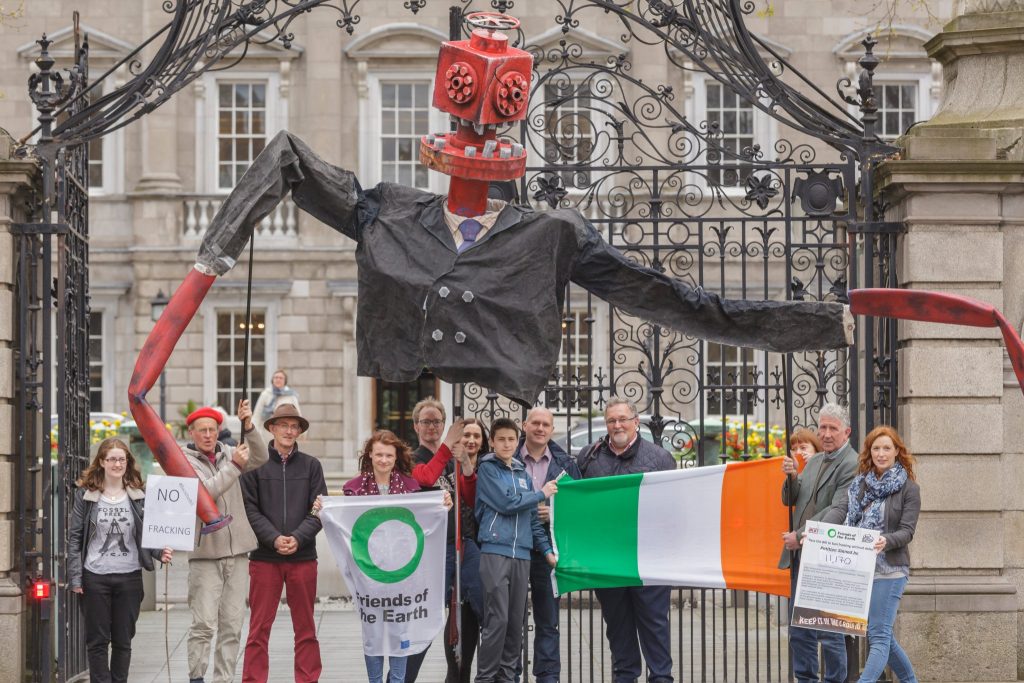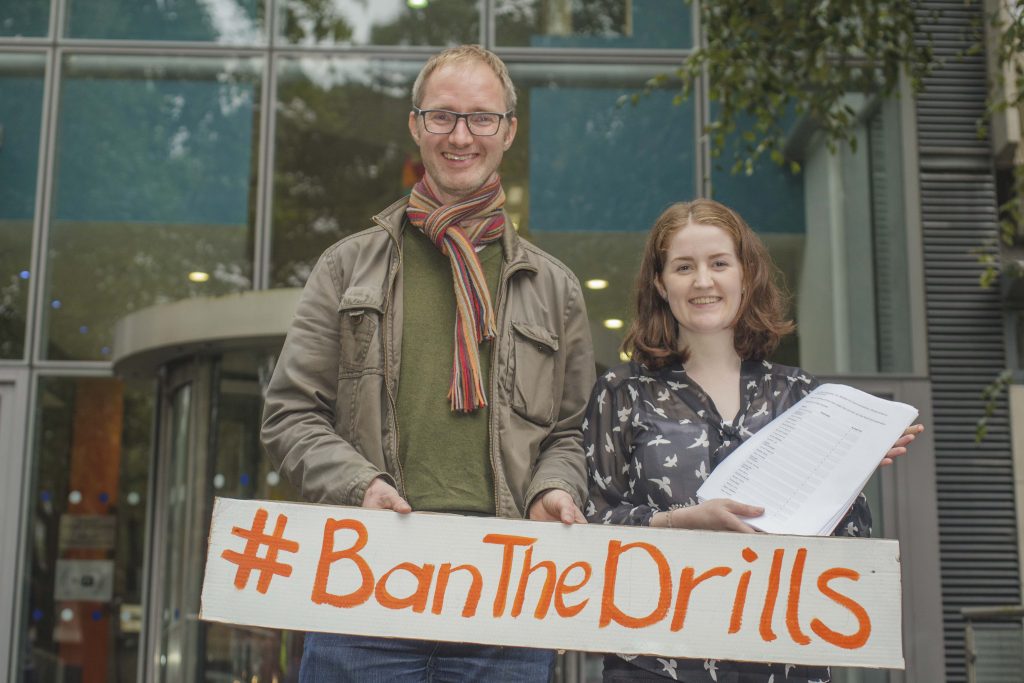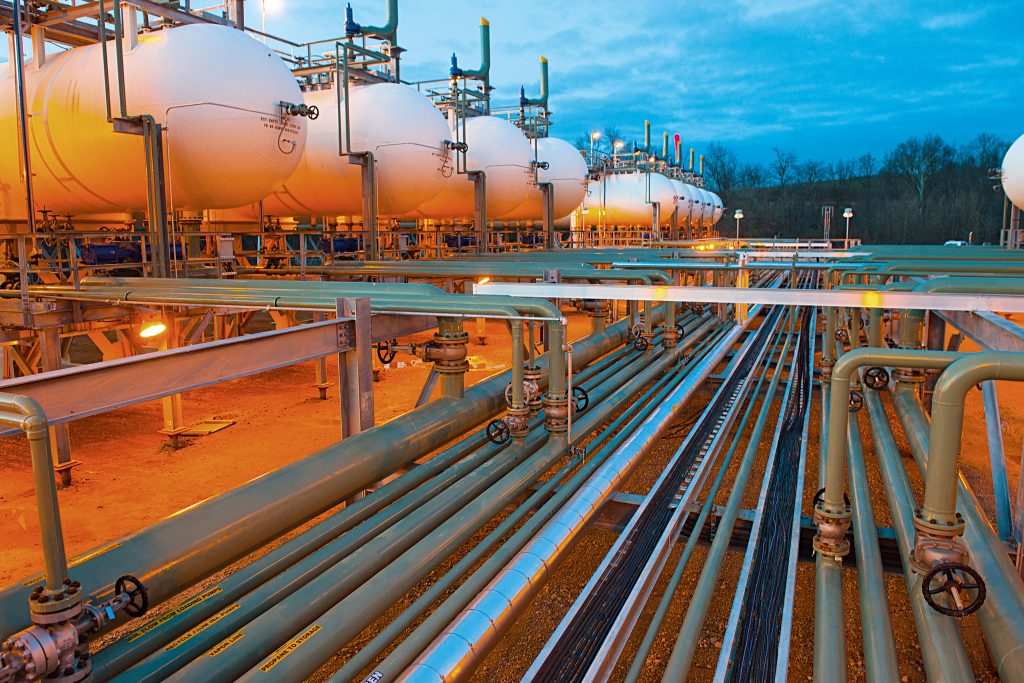Planning permission extension for gas terminal a ‘disastrous’ decision for Ireland

July 27th, 2018
The national planning authority has granted a five-year planning permission extension for a controversial project to import liquefied natural gas (LNG) to Shannon from the US fracking industry.
The Shannon LNG proposal intends to build a gas terminal on the Shannon Estuary and import the gas to Ireland, the only country in Western Europe within such a terminal.
The €500million project on the Tarbert-Ballylongford landbank has stalled for several years since it first received planning permission from An Bord Pleanála (ABP) in March 2008 subject to 40 conditions.
ABP originally granted permission for 10 years in order to allow a reasonable period for the completion of the development, which has now been extended for an additional five year.
The process of exporting gas as LNG requires an energy-intensive process of transporting, purifying, and cooling it into a liquid via a network of pipelines and export terminals from where it is shipped overseas on tankers as long as 275 meters.
The Shannon LNG proposal appears to run contrary to Ireland`s decision to ban onshore fracking lack year due to the potential impact on both human health and the environment.
Fracking is used to extract natural gas from land rich in shale rock. It involves the pumping of a high-pressure mix of water, chemicals, and sand into the rock to create openings so that gas can seep out into deep wells.
Last year, the Port of Cork Company also signed an agreement with US energy company NextDecade to explore the importation of liquefied natural gas (LNG) from the US.

Protest in support of fracking bill, 2017 Photo: Niall Sargent
‘Disastrous’ decision for Ireland
According to Andy Gheorghiu, a policy advisor at Food & Water Europe, ABP’s decision is “disastrous” for the environment, as well as a “hard slap in the face” for campaigners, NGOs and politicians who fought for a “fossil free future of the Green Island”.
He added: “How can Ireland ban fracking and vote for a full divestment from fossil fuels while at the same time it gives green light for the next planning steps of the Shannon LNG… putting the Irish climate targets and, in particular, impacted communities in the US in jeopardy?”
Speaking at the Our Ocean Wealth Summit last month, the Minister of State for Natural Resources, Seán Kyne TD, outlined the Government’s support for increased oil and gas drilling in Irish waters.
Mr Kyne said that in the medium term the “on-going discovery and development” of oil and natural gas can deliver energy security and be a “very significant economic driver”.
Mr Gheorghiu warned, however, that that two planned LNG projects on the southwest coast will “create fossil lock-in” as their combined capacity of 14 billion cubic meters per year would supply Ireland’s fossil gas needs twice over.
Speaking before an Oireachtas Committee on the Climate Emergency Measures Bill earlier this month, Gregg Muttitt of the climate and energy think tank Oil Change International said that Ireland’s dependence on coal, oil and gas will ensure that we miss our Paris Agreement targets.
He argued that the idea of using gas as a transitional fuel is a “flawed” plan as it doesn’t fit within today’s market budgets and will slow down the transition to renewable power as gas competes with wind and solar.

Oisín Coghlan, Friends of the Earth Ireland & Ciara Barry, Not Here, Not Anywhere Photo: Niall Sargent
ABP decision is ‘troubling’
Ciara Barry of Not Here Not Anywhere (NHNA) said that the grassroots campaign group was particularly concerned by ABP’s “troubling” decision not to seek further information on the potential environmental and climate impacts of the project.
In its latest decision, ABP determined that the screening for appropriate assessment submitted with the original application was sufficient to show that there would be no “significant effects” on the Natura 2000 protected area in which the development is set to be built.
ABP also said that it was satisfied with the initial Environmental Impact Assessment and that an Environmental Impact Assessment Report (EIAR) is not required for the project as the plans would “not be likely to have significant effects on the environment”.
Amendments to the EIA Directive in 2014 ensure that an EIAR must consider the climate change impacts of new developments. Ms Barry said that she is also concerned for communities in the US whose health and livelihoods are being “threatened by an expanding fracking and LNG industry”.
NHNA is in contact with communities in Texas that are “afraid for the health of their children”, she said. “The LNG export industry which is plaguing them can only grow if countries like Ireland decide to import fracked gas in the form of LNG.
“Ireland cannot start integrating highly polluting LNG into our energy mix if we are in any way serious about reducing our emissions,” she said.

Natural gas pipeline USA Photo: Bilfinger
US trade deal opens door for LNG
A new US-EU trade agreement signed this week by Donald Trump and the European Commission President, Jean Claude Juncker, could make the Shannon LNG terminal more attractive to investors, according to the MEP for the south of Ireland, Sean Kelly.
“There are projects planned already which are known as PCIs, projects of common interest, which would include LNG terminals. That means if we are going to take in more LNG from the US, then we must complete PCIs and one of those is Shannon LNG,” Mr Kelly is reported as saying in the Limerick Leader.
The EU`s Projects of Common Interest (PCI) are key infrastructure projects designed to link the energy systems of the EU State members. They are supposed to support the EU`s policy and climate goals by offering cheap, safe and sustainable energy to citizens.
However, the PCIs list contains more than one hundred gas infrastructure projects to be built in Europe, including the Shannon LNG proposal.
The PCI list also includes projects such as the Southern Gas Corridor which has been linked to the violation of human rights in Azerbaijan, and the MidCat pipeline among France and Spain, which has been the target of growing protests.
According to a 2017 study commissioned by Friends of the Earth Europe, the EU won`t be able to depend on fossil fuels, including natural gas, in the near future. The study discovered that EU State members can afford only nine more years of fossil fuels at today`s rate if they want to keep to a maximum temperature rise of 2C.
[x_author title=”About the Author”]







